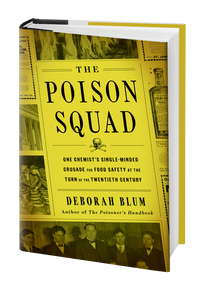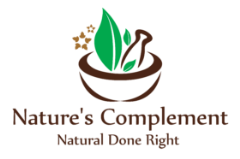
When you can’t prosecute someone for killing someone because it’s not illegal to add lead or mercury to candy, then how do you know that what you buy to eat is safe? You don’t. Then you would think that creating laws against such actions should be an easy decision without obstacles. And yet… you learn just how much the money hungry manufacturers played a role in preventing these safety laws from coming into play (for years).More shocking is that many of the chemicals that are still added to food (and personal care products) today where in question even then, back in the early 1900’s. Yet the lobbyists have been working hard to make sure that manufacturer’s are allowed to continue to poison us, so that they may make a quick easy buck. Benzoate is one of those ingredients that comes to mind.
This is a book about the birth of the FDA, but not the same FDA that you and I know today. If you are of the same opinion as me that the FDA is bought and paid for by the big pharma, the industrial food industry, lobbyists, politicians, and the like, then read this to learn for yourself how corrupt things were, even back then, when it was just beginning.
But there is hope, and that is what this book is about: A public servant champion, and the main person in this book, Dr. Wiley. Dr. Wiley never let anyone keep him from trying to make things right. And after
Don’t let the dryness at the beginning of the book fool you. The descriptions of the players are all important because they all play an important role. You might even be surprised when you recognize some of the names that are well known today, and what role they played in poisoning your great grandparents back then. While the book can be a bit tedious at times, it is also quite engaging at other times. And remember, this is YOUR FOOD that it’s talking about. The very laws and regulations that are supposed to protect you and your children.
Do skip the epilogue though, it doesn’t seem to fit in with the rest of the book. The author really tried, but it just didn’t fit. But don’t let the epilogue ruin an otherwise great book. The book itself is an important piece of history that should have you reconsidering what is in your food now. Be thankful that we do have laws that require ingredients to be listed, and realize how much more work we have to do to guarantee a safe food supply in the world.
Most importantly, realize that the topics covered in this book still apply today. We still face safety problems with the food supply (e.g. toxic pesticides and preservatives), and we still face safety problems with other consumer products like personal care products.
Buy it, read it, read it again, tell a friend.
For Health,
Tober
Nature's Complement is a participant in the Amazon Services LLC Associates Program, an affiliate advertising program. If you purchase products on Amazon through any of our affiliate links, we get a small percentage of the transaction, at no extra cost to you. We spend a lot of time writing the articles on this site, and all this information is provided free of charge. When you use our affiliate links, you support the writing you enjoy without necessarily buying our products. (However we would appreciate if you would do that too!) Thank you for helping to support our work, however you choose to do so.
These statements have not been evaluated by the Food and Drug Administration. This information and/or products are not intended to diagnose, treat, cure or prevent any disease.


